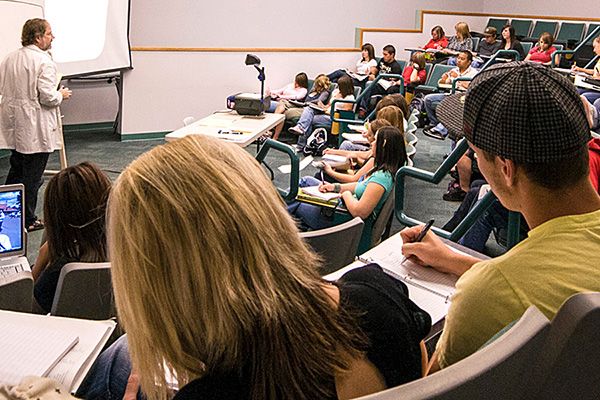Drug-Free Student Environment
A Matter of Substance
The Drug-Free Schools and Communities Act of 1989
On Dec. 12, 1989, President George H. W. Bush signed the Drug-Free Schools and Communities Act Amendments of 1989. Essentially these amendments require that institutions, such as Northland Pioneer College, that contract with or receive grants from federal agencies, certify that they will meet certain requirements for providing a drug-free environment.
The NPC governing board and administration believe strongly in the right of students to learn in an environment that is free from illegal drugs and alcohol use. The college expects to comply fully with the act and is taking the following steps to ensure a drug- and alcohol-free environment.
- A drug- and alcohol-free student workplace environment policy and procedure has been developed and approved by the governing board.
- The college will comply with the amendments by taking a position that conforms to its requirements.
- Each student will be informed about the college’s position on maintaining a drug- and alcohol-free work environment.
- Students are expected and required to report to school in appropriate mental and physical condition. It is NPC’s intent and obligation to provide a drug- and alcohol-free healthful, safe and secure school environment.
- The college prohibits the unlawful manufacture, distribution, dispensing, possession or use of controlled substances and alcohol on college premises or while participating in any college activity.
- Violations will be referred to the Vice President of Learning and Student Services for action in accordance with Procedure 2625 – Student Code of Conduct. Disciplinary sanctions will be imposed, consistent with local, state and federal law. Violations may result in probation, suspension from school or expulsion. Disciplinary sanctions may also include the completion of an appropriate rehabilitation program.
- The college recognizes drug and/or alcohol dependency as illnesses and major health problems. The college also recognizes drug and alcohol abuses as potential health, safety and security problems. Students needing help in dealing with such problems are encouraged to seek it, either through their own resources or by requesting help or referral through the advising office. Conscientious efforts to seek help will not jeopardize a student’s enrollment.
- Serious violations will result in students being reported to local law enforcement officials for appropriate local, state or federal action. Prosecution can result in fines, prison terms or both.
Employee Drug-Free Workplace
1. Employees who fail to abide by the terms and conditions of Policy 1560 – Drug-Free Workplace, shall be subject to the Due Process Policy 1591 and Procedure 2755 of the college. Violation of this policy may result in disciplinary action up to and including terminations. In addition there may be possible legal consequences for some violations.
2. An employee must inform his or her supervisor of a conviction no later than five days after criminal conviction for illegal drug activity occurring on or off college premises while conducting college business. Failure to report such conviction will subject the employee to the Due Process Policy and Procedure as specified above.
3. Any employee reasonably believed to constitute a risk to persons or property while operating any college equipment will not be permitted to do so. Any employee asked not to operate college equipment or drive a personal vehicle because of impairment, but who insists, will be advised that the college will immediately report this to the appropriate law enforcement agency, when applicable.
4. Any employee with a drug or alcohol problem is encouraged to seek help. Such may be sought through the employee’s own resources or through his/her supervisor, the Chief Human Resources Officer or other agencies. An employee’s request for assistance does not jeopardize his or her job rights. However, the seeking of such help does not prevent disciplinary action under any college policy violation for impaired job performance.




